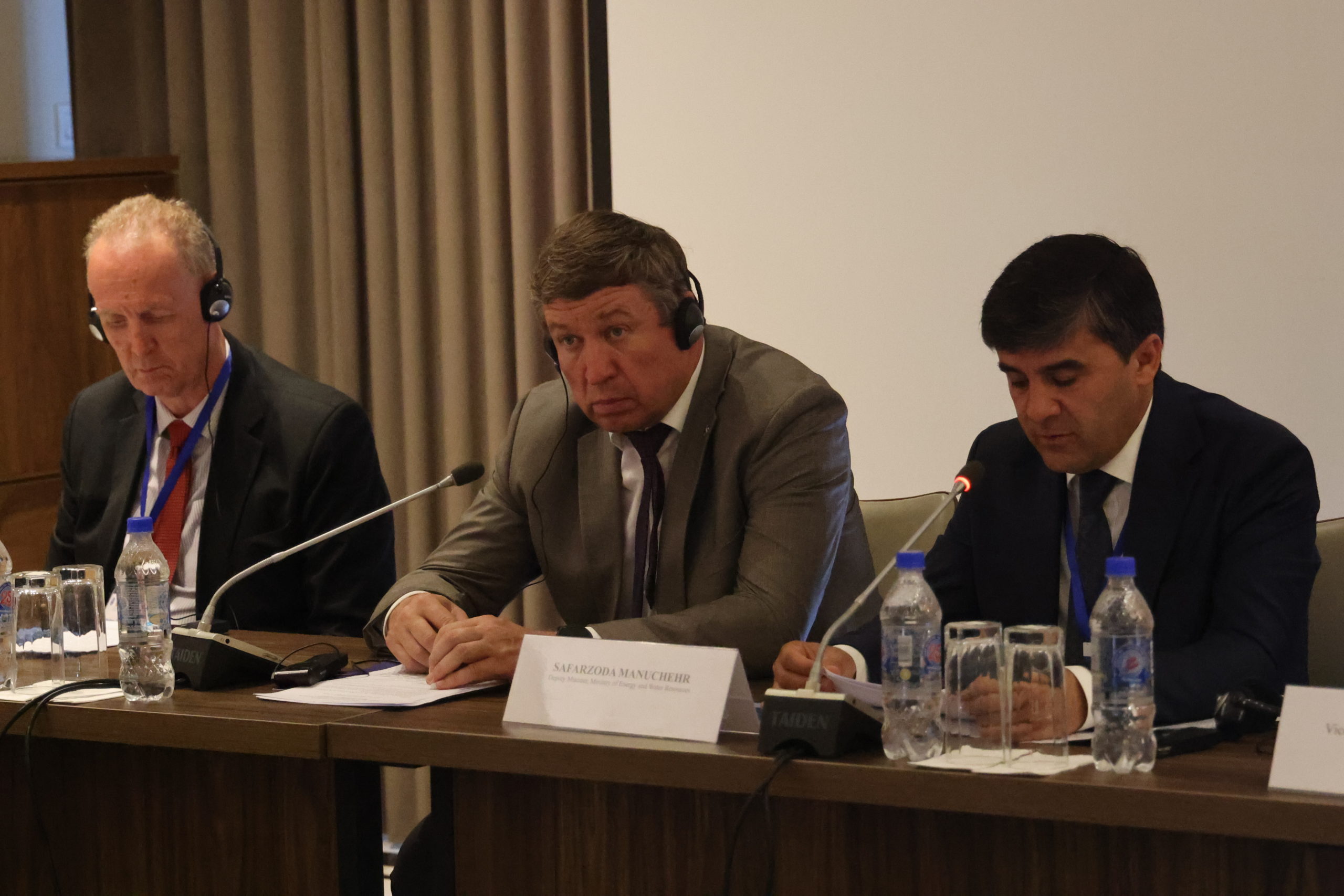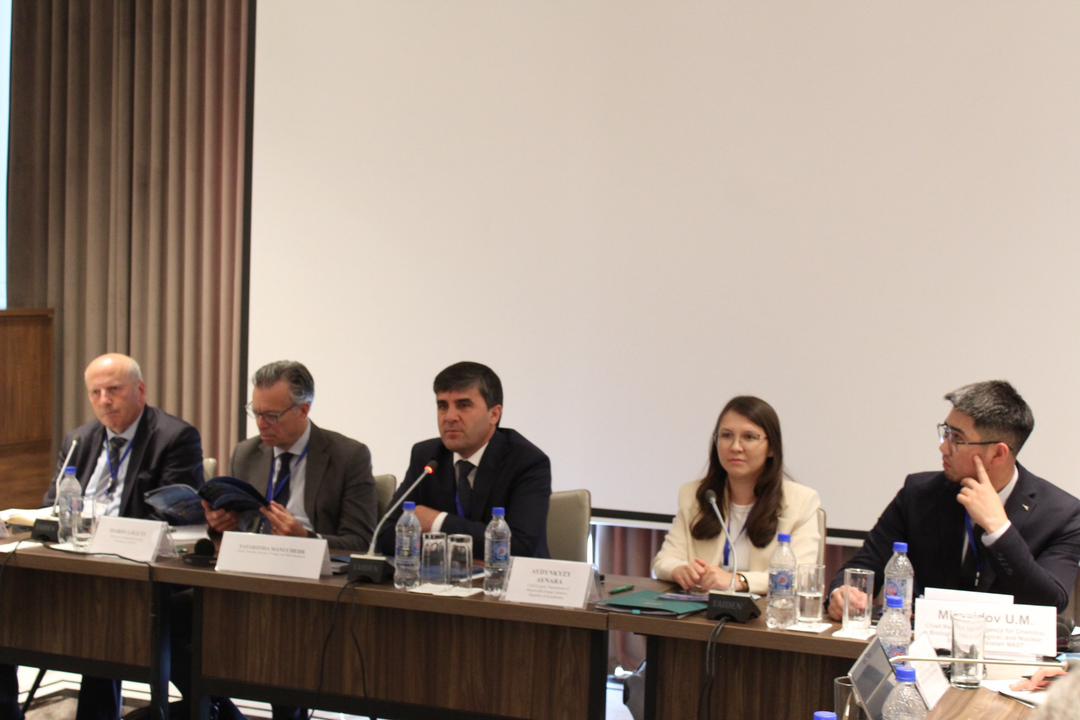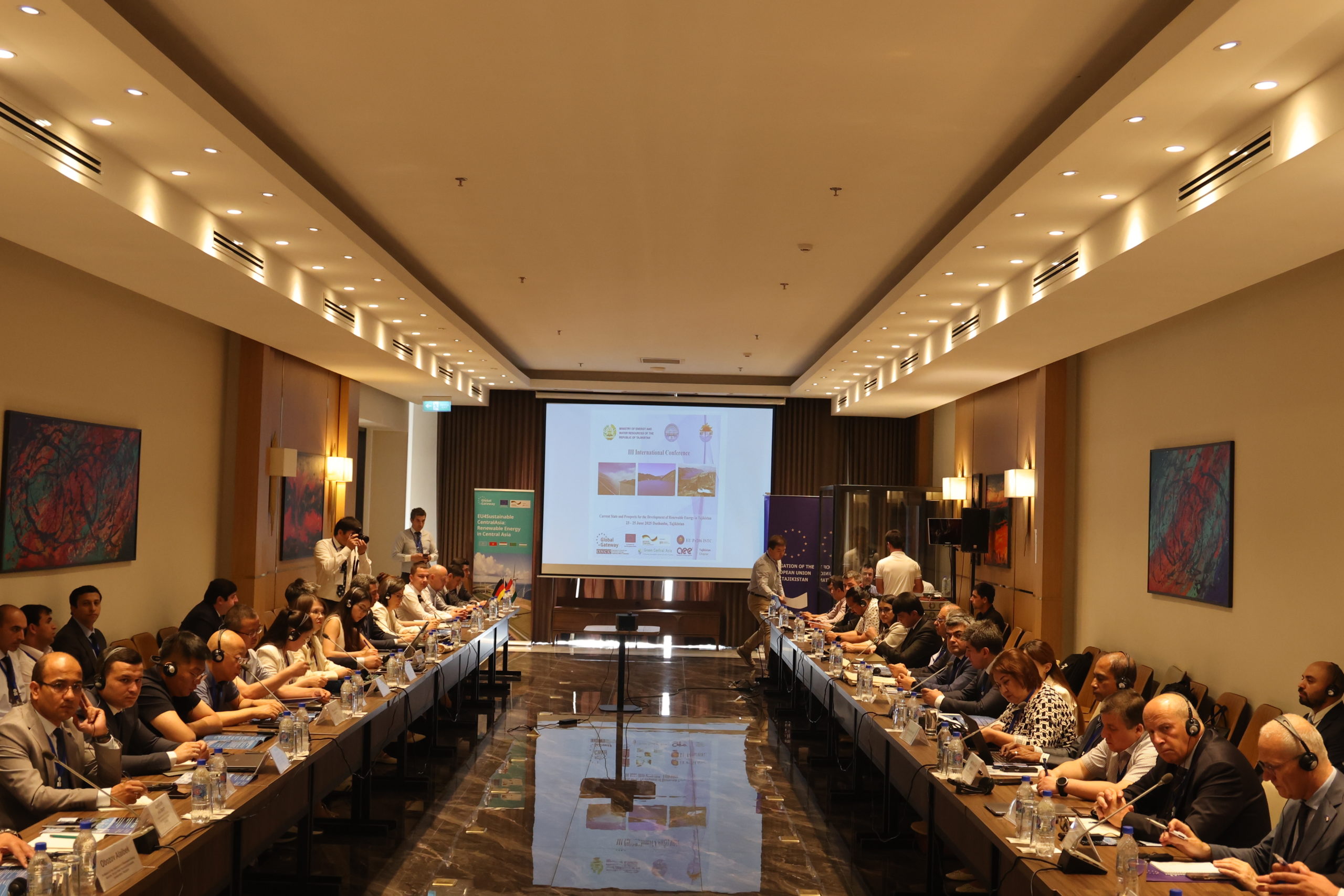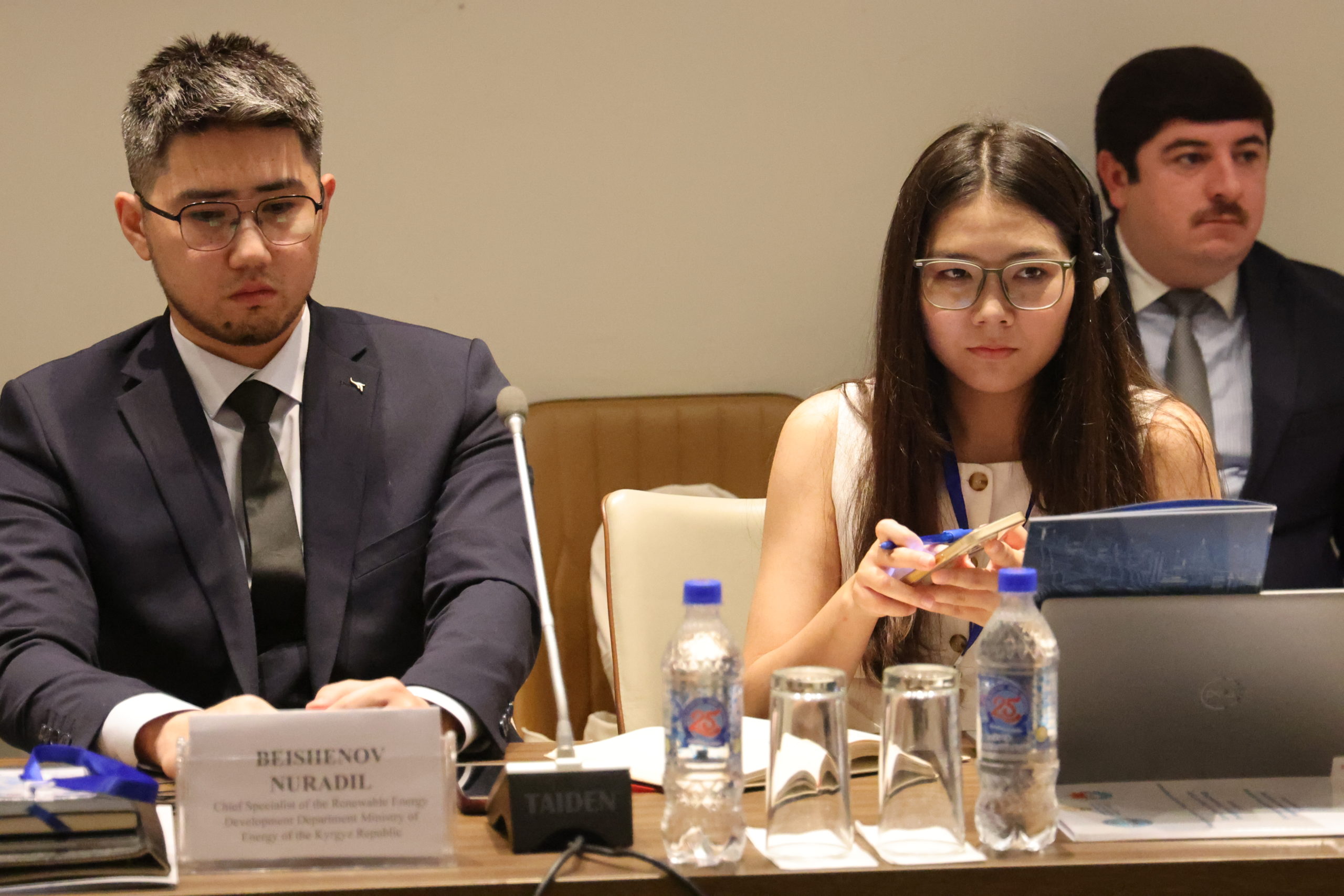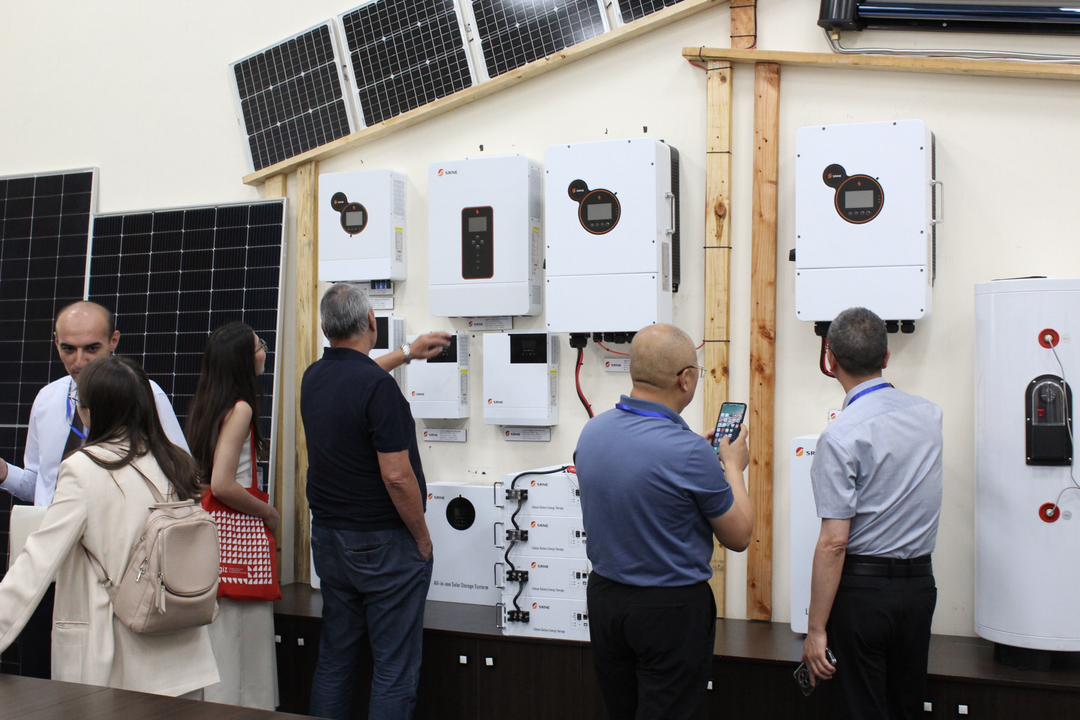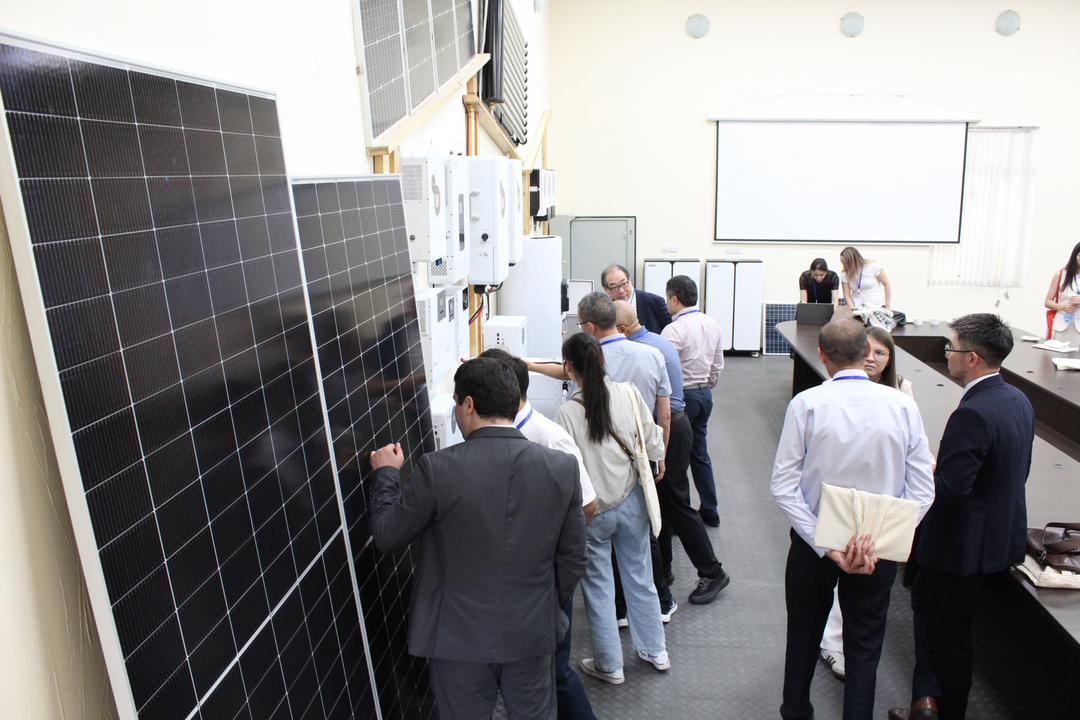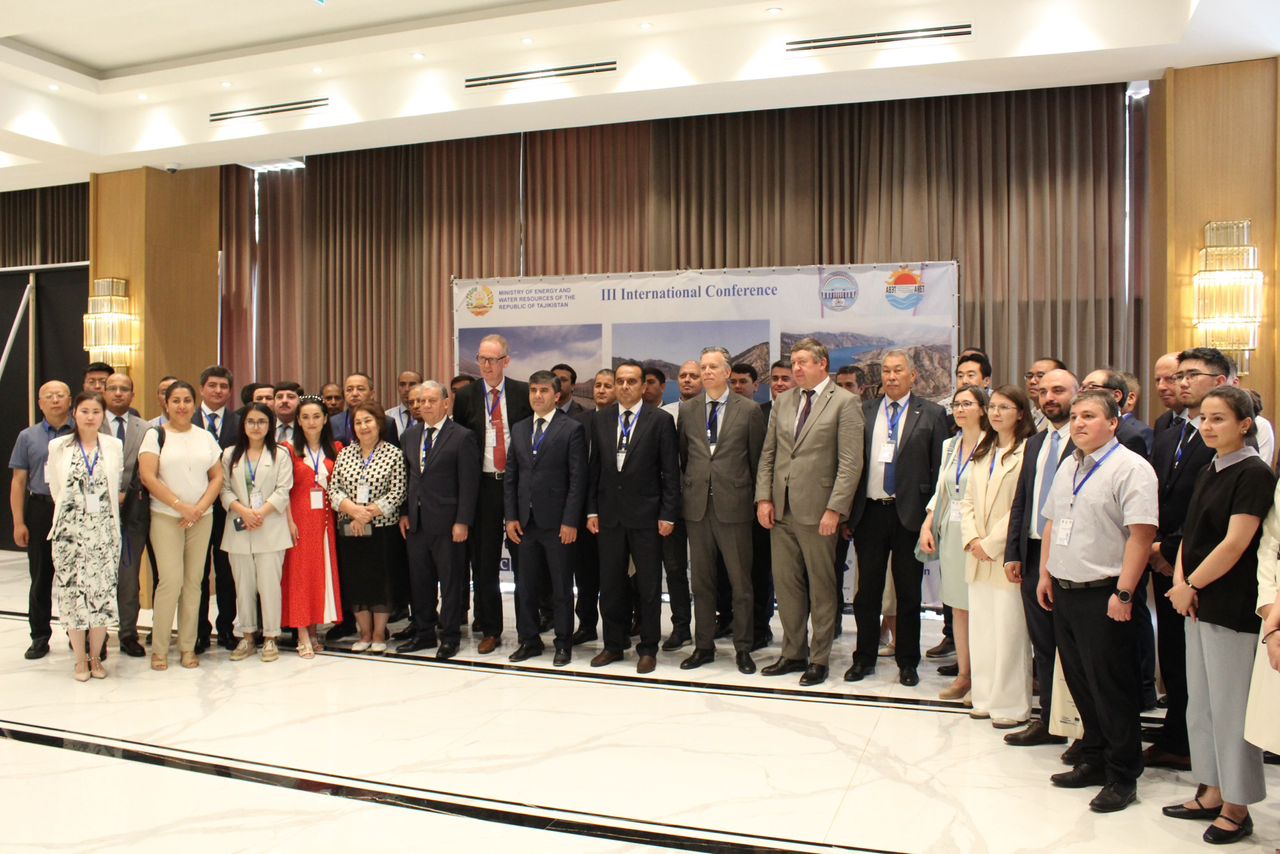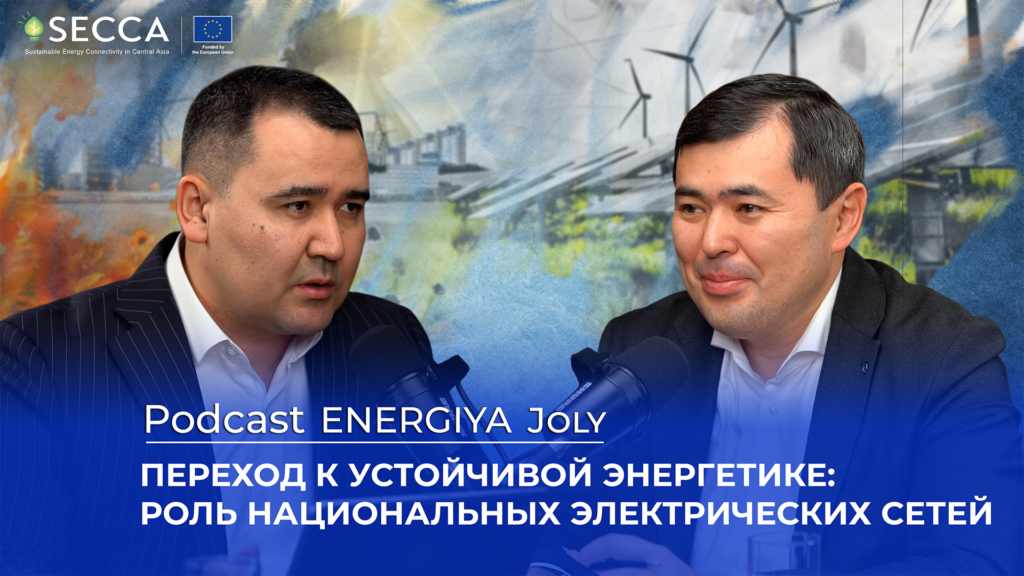Dushanbe, Tajikistan – The III International Conference “Current State and Prospects for the Development of Renewable Energy in Tajikistan” was held from 23 to 25 June 2025. The event brought together the high-level officials, experts, and researchers from across Central Asia, as well as representatives of international organisations and donors. The Conference served as a platform to foster regional cooperation and emerging initiatives in the renewable energy sector.
The Conference was organised by the Ministry of Energy and Water Resources of the Republic of Tajikistan, the National Academy of Sciences of Tajikistan, and the Association of Renewable Energy Tajikistan, in partnership with the European Union (EU), GIZ, OSCE, and AEE Tajikistan Chapter.
In his opening remarks, Daler Jum’a, Minister of Energy and Water Resources of the Republic of Tajikistan, emphasized the country’s and its energy sector’s vulnerability to climate change. He noted that the National Development Strategy of the Republic of Tajikistan until 2030 sets a target to diversify energy generation sources by 10% and produce an additional 500 million kWh annually through renewable energy and energy-efficient technologies. The Minister reiterated Tajikistan’s commitment to regional integration and making a significant contribution to reducing harmful emissions through development of infrastructure projects for the transmission of clean and green energy from Tajikistan to neighbouring countries.
The EU-funded project “Sustainable Energy Connectivity in Central Asia (SECCA)” contributed to Session VII of the Conference focused on the prospects for the development of rooftop solar installations in Central Asian countries. SECCA Team Leader and Key Expert in Energy Engineering Paata Janelidze moderated this session and opened the discussion with a presentation on the project’s work in promoting rooftop solar. The session then continued with the presentation by SECCA’s Senior Expert in Energy Engineering Mansur Kudusov on the detailed assessment of rooftop solar energy potential in Central Asia.
The session concluded with an engaging discussion among the participants, reflecting growing interest from public, private, and academic stakeholders. It underscored the importance of regional cooperation and international support in advancing rooftop solar deployment across Central Asia.


